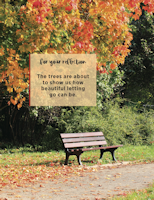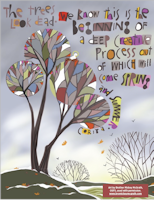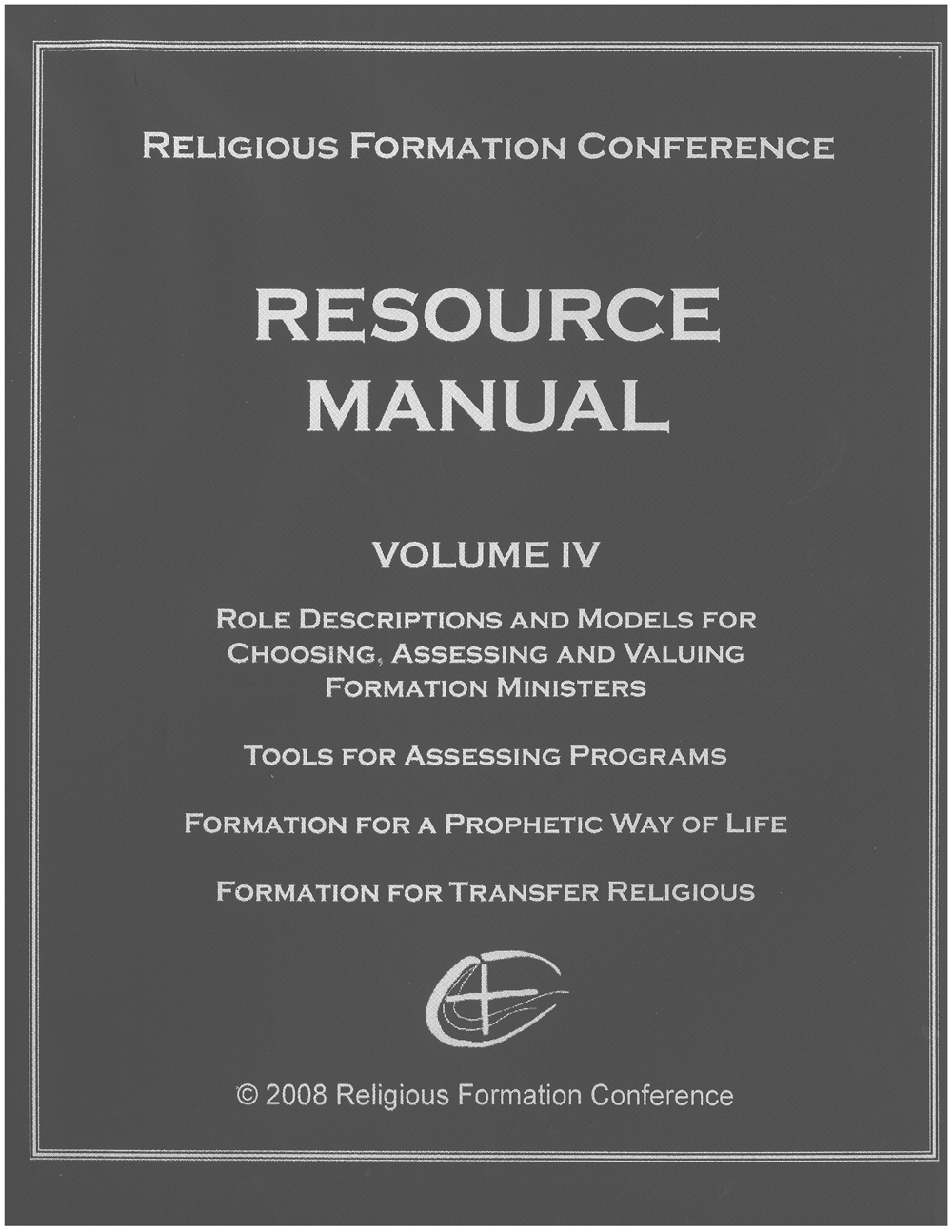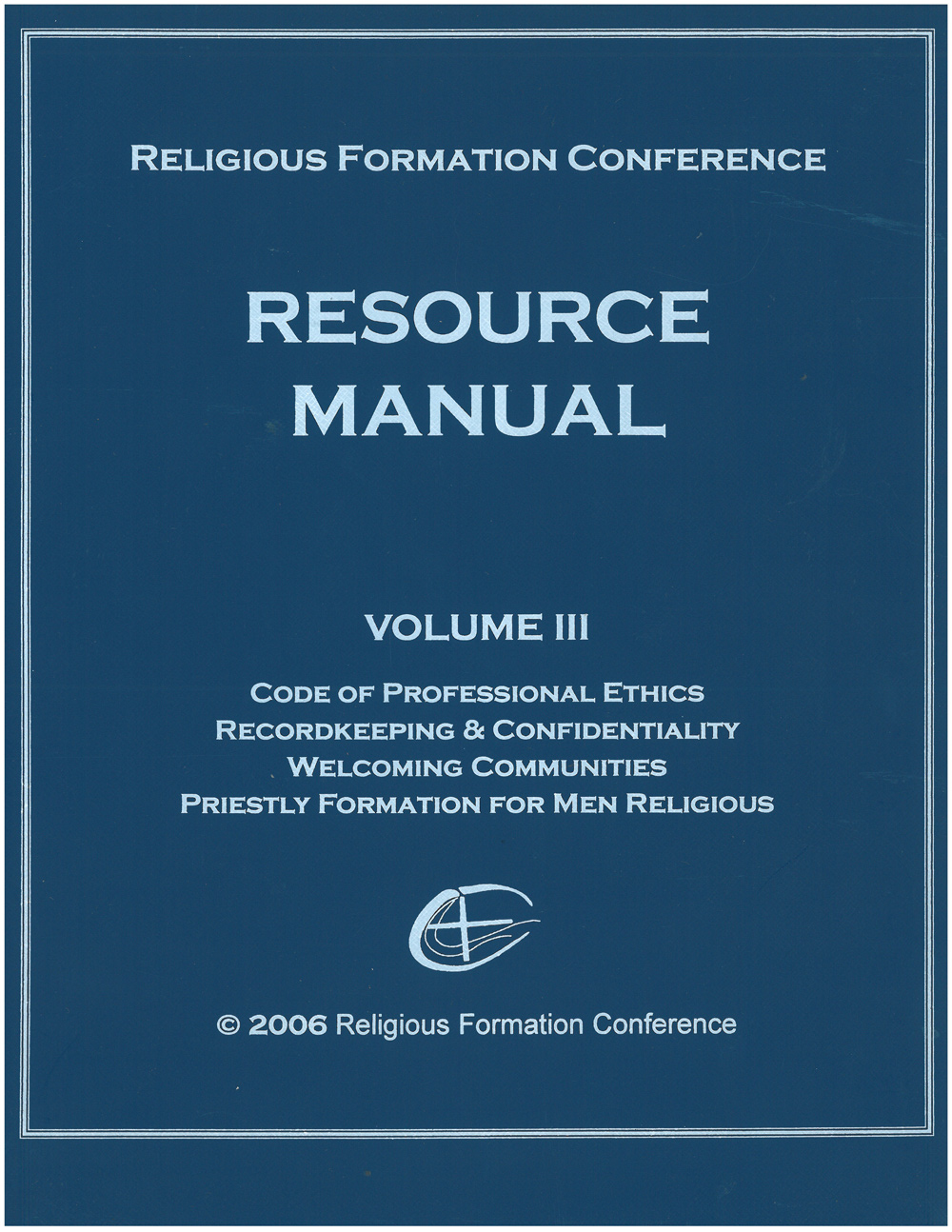
Exclude no one from God’s family
The Lord seeks to establish a new covenant, another type of kinship, as he conveys to us the experience of a God who is Father and who wishes to exclude no one from his family.

The Lord seeks to establish a new covenant, another type of kinship, as he conveys to us the experience of a God who is Father and who wishes to exclude no one from his family.

InFormation Bulletins - InFormation 2018 No.4 Winter
"The information was clearly focused on trust building and relationship sustaining work in the world of business and consulting professions. As I listened, it quickly became clear that this text was timely and relevant for those in Church-based ministries across the board, and in particular, for those in vocation and formation ministries. Trustworthiness is essential to the manner in which we co-create and foster a culture of trust, offer counsel and process discernment with those we serve, and nurture relationships that facilitate openness, integrity, and growth."
Click here to access the full article.
Members must be logged in to view this content

On January 23, the CTU and Precious Blood communities gathererd to remember our colleague Robert J. Schreiter, CPPS at Catholic Theological Union (CTU). His student, Sr. Mi Kyong Hwang, CPPS, offered the following lecture: “A Spirituality of Reconciliation: Robert Schreiter, a Reconciling Presence in Integrity of Heart.”

InFormation Bulletins - InFormation 2019 No.3 Fall
"Christian hope acknowledges reality we can see, humbly acknowledges God sees infinitely more, and chooses to trust that God is always in the business of bringing about new life where we don’t expect it. And then Christian hope is realized in action as we get dirt under our fingernails – planting a seed, pulling a weed, watering a tender shoot."
Click here to access the full article.
Members must be logged in to view this content

InFormation Bulletins - InFormation 2019 No.4 Winter
"In a profound way, this makes us more relevant than ever; it places us in communion with the people of our time and place - especially those at the peripheries. While we can be justly proud of past achievements, we also have to acknowledge our past blindness and negligence especially where we failed to protect the most vulnerable among us. We are called to face the future with the same courage and conviction of our founders and foundresses, convinced what matters is our presence and our encounters with the people of today and their needs."
Click here to access the full article.
Members must be logged in to view this content

InFormation Bulletins - InFormation 2020 No.3 Fall
"For me, the experience of these uncertain times should serve as a wake-up and a shake-up call to a new reality. I know that many hope that this pandemic is an interruption and that life will soon go back to 'normal.' I think that some people think the same thing about the protests and systemic racism or even climate change. But I hope that we listen to this time, sift through the different elements of this reality and choose the 'gold' that we want to carry forward with us into a new form of life."
Click here to access the full article.
Members must be logged in to view this content
InFormation Bulletins - InFormation 2021 No.4 Winter
"Could it be that the profound disruptions that are taking place in our world and church, across all cultures and places, are harbingers of a resurrection and the hope that new life brings? Could it be that the breakdown of our systems and structures and the utter instability of this change of era - in every aspect of life, including institutional religious life, is actually a breakthrough to a new horizon?"
"To consider hope in this way may provide an insight into the full flourishing of the human community in ways that we would never have expected and were not possible from our previously unexamined narratives, or collapsing worldviews."
Click here to access the full article.
Members must be logged in to view this content

This webinar will focus on new legal questions religious congregations encounter today. These include such delicate topics as end of life decisions and issues which newer members who have raised families and/or had long careers before entering religious life may present: concerns about property disposal, inheritance, debts, contracts, and insurance. There will be an opportunity for webinar participants to raise questions and issues of concern to them.
Lynn M. McKenzie, OSB, is a member of the Benedictine Sisters, Sacred Heart Monastery, Cullman, AL. A civil and a canon lawyer, she is currently an ombudsman/mediator for the Department of Labor of the State of Alabama, a judge and defender of the bond for the Tribunal of the Catholic Diocese of Birmingham, AL, and a canonical consultant and advocate for leaders and members of religious communities. Her civil law degree is from the University of Alabama and her licentiate in canon law from the Catholic University of America.

Being resilient in the face of adversity requires us to look inward rather than outward and examine our approach, our expectations, and our reactions to situations. This webinar will focus on the following topics: the definition of resilience, the factors that enhance our ability to be resilient, the distorted scripts that lead to burnout, the difference between healthy vs. unhealthy self-sacrifice, and the importance of establishing a self-care plan.
Eran Talitman, Ph.D., C. Psych. is a registered psychologist in the province of Ontario, Canada. He has provided assessment and treatment services to individuals, couples, and families in both a hospital setting and private practice. He has also been a consultant to individuals diagnosed with HIV, cancer, and traumatic brain injury. For the past 16 years, he has been at the Southdown Institute and has provided individual and group therapy as well as assessment services to religious and clergy. He has provided workshops and presentations on Intimacy, Healthy Sexuality, Developing Healthy Ministerial Boundaries, Keeping Our Soul Alive, Effective Leadership, and Working with Personality Disorders.

This webinar will provide an overview of the immigration processes available for “religious workers.” In immigration law, the term “religious worker” encompasses men and women, both religious and lay, who serve in various capacities in religious organizations. For purposes of this webinar, we will focus our attention on members of religious institutes. We will cover immigration basics, including R-1 status, R-1 visas, and the permanent residency process. This will include a breakdown of the different regulations for the temporarily-professed and the perpetually-professed members of religious communities. We will also briefly discuss the regulations regarding students visa and visitor visas for missionaries. Finally, we will discuss USCIS site visits, as well as record keeping and best practices for maintaining immigration files.
Megan S. Turngren is an attorney in the Religious Immigration Services division of Catholic Legal Immigration Network (“CLINIC”). Ms. Turngren first came to the immigration field in 2003, and in 2005 began practicing immigration law with one of the best known immigration firms in the United States. In July 2012, she joined CLINIC and started working exclusively with foreign-born religious workers. By utilizing her expertise, Ms. Turngren is able to assist her clients in navigating this complex area of law by offering consultations, advice, and preparation of legal filings of immigration petitions and applications. Currently, she represents more than 35 religious entities, including Catholic Archdioceses, Dioceses, and Religious Communities, as well as over 150 foreign-born religious workers.

The impact of living in a digital world which is “always on” 24/7 is felt in all walks of life: consecrated life no less than the others! The questions many of us are asking revolve around how to authentically respond to the call and charism of our Congregations’ ministries, which often require the use and knowledge of social media, welcome new members, many of whom do not remember a time without 24/7 availability to social media, and encourage appropriate use of social media for all members, while striving to faithfully and realistically live a communal life together that implies interconnectedness and intentional, healthy, adult relationships. In this webinar, Sister Sue Pontz, SS.C.M., shares her insights concerning some of the topics around which Congregations need to focus conversations in order to address these key issues regarding the appropriate use of social media today.
Susan Pontz, SS.C.M., of the Sisters of Saints Cyril and Methodius, is a member of her Congregation’s Leadership Team and its Co-Director for Vocations. Sue serves as the Director of Instructional Technology at the Oblate School of Theology in San Antonio, Texas. Recently trained as a spiritual director, she has an Ed.D. in Instructional Technology and an MA in Theology.

Presented by Religious Formation Conference (RFC) in partnership with Conference of Major Superiors of Men (CMSM)
Part Two: Dealing with Difficult findings and Difficult Realities
Part Three: Developing and Managing Intercultural Competencies Within Formation
Fr. Jerry McGlone, SJ, PhD, Associate Director, Conference of Major Superiors of Men (CMSM)

In this webinar, Marianne shares her experience and teaching of a practice called Compassionate Listening. The practice grew out of work facilitated by Leah Green (rooted in the work of Quaker Gene Knudsen Hoffman) with reconciliation leaders on the ground in Israel – Palestine beginning in 1991. The reconciliation work in Israel-Palestine was adapted for peace-building in everyday life and the Compassionate Listening Project began in the U.S. in 1999. Marianne has presented the practice to formation personnel participating in the RFC ForMission Program.
Sister Marianne, a member of the Sisters of the Holy Cross, Notre Dame, IN, is Professor of Theology and Philosophy and member of the Core Doctoral Faculty at the Dominican School of Philosophy and Theology, Graduate Theological Union, Berkeley, CA. Through teaching and professional affiliation, Marianne, is engaged in efforts to address some of the most critical issues facing today’s global communities – ecumenical and interreligious affairs, interfaith dialogue, cross cultural communications, Catholic social teaching, and care of Earth.

A significant component of our charisms as members of religious communities involves being intentional about accompanying those who have been marginalized. In order to do this well, we must consider how past, present and future actions inform the ways we approach issues of justice. Utilizing a lens of racial justice, this webinar will wrestle with the history and lessons of Jesuit slaveholding and the continued need to break down silence and complicity. The session will focus on community approaches to restoration, reconciliation, and mutual transformation.
This webinar will be facilitated by Danielle Harrison, Co-Director of the Slavery, History, Memory, and Reconciliation Project with the Jesuit Conference of Canada and the United States. It will include other staff and collaborators in mission.

On June 16, 2020 the National Catholic Reporter publish an anti-racism reading list. Complete with news articles, commentaries, books reviews and more, this is an excellent resource for deepening one's awareness around systemic racism.

InFormation Bulletins - InFormation 1996 No.3 May-Jun
"It is curious to consider that we priests and religious do not scrutinize our own way of proceeding as well as we do others; moreover, we scrutinize others ways of proceeding from the pulpit and in episcopal letters and we hesitate scrutinizing our own, even within internal proceedings. The silence about the testing issue is disturbing, in the least."
Click here to access the full article.
Members must be logged in to view this content

Formation Resources - Resource Manuals - Volume IV
II. Tools for Assessing Programs
Click here to access the full document.
Members must be logged in to view this content


Formation Resources - Resource Manuals - Volume III
Part I: Code of Professional Ethics for Formation Ministers
Click here to access the full document.
Members must be logged in to view this content